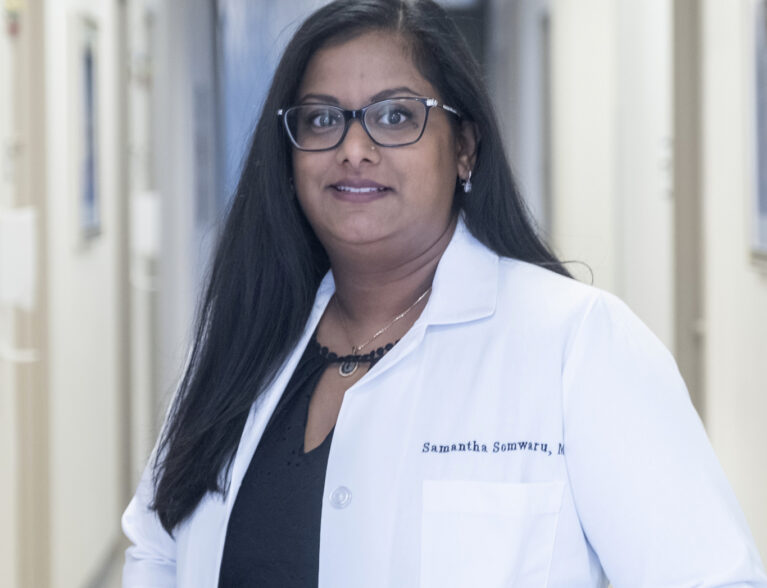
Many people got out of the habit of going to the doctor during COVID, putting off regular checkups – and needed treatment – for fear of contagion.
But, even with a late-summer COVID-19 surge, the pandemic is long over, and Dr. Samantha Somwaru, family practitioner with Cleveland Clinic’s Indian River Hospital, said patients should get back in the habit of regular annual screenings.
“Screenings are specific tests or exams designed to identify health conditions before symptoms develop,” she said. “High cholesterol feels fine until your arteries get clogged.
Routine screenings can significantly improve treatment outcomes because early intervention can prevent catastrophic results later. Regular screenings are associated with each individual depending upon their age, risk factors and what medications they take.
“Everyone on Medicare and most other insurances is entitled to a free annual wellness visit,” Dr. Somwaru explained. “This wellness visit can be administered by the physician, physician assistant or a nurse. It is different from your hands-on annual physical. The goal of the annual wellness check is to set your healthcare goals and suggest important screenings. Your physician will review your medical history and address any health concerns that may have arisen since the previous visit.
“A hands-on physical is a head-to-toe exam completed by your physician, who will address any recurring health issues like high blood pressure or diabetes,” Dr. Somwaru continued.
“Everyone should have a physical at least once a year and those with ongoing health issues may find it necessary to see their physician every three to six months.”
The Centers for Disease Control and Prevention and the American Cancer Society offer guidelines for suggested health screenings based on age and risk factors that most insurances follow.
Childhood and Adolescence
- Regular pediatric visits to monitor growth, development and immunizations.
- Vision and hearing screenings for early detection of sensory issues.
- Dental checkups to promote oral health and hygiene.
Early Adulthood (20s and 30s)
- Blood pressure checks to assess cardiovascular health.
- Cholesterol screenings to evaluate heart health.
- Skin cancer screenings to detect abnormal skin growths.
- Pap smears for detection of cervical cancer starting at age 21.
Middle Adulthood (40s and 50s)
- Diabetes screenings to evaluate blood sugar levels.
- Mammograms for breast cancer detection starting at age 40 or earlier depending on risk factors.
- Colorectal cancer screenings beginning at age 45.
Late Adulthood (60 plus)
- Bone density tests to assess osteoporosis risk.
- Prostate cancer screenings for men starting around age 50.
- Eye exams for age related vision changes.
“Guidelines change from time to time,” Dr. Somwaru explained. “Just recently, the guideline for colon cancer screenings was changed from starting at age 50 to age 45 because more young people were being diagnosed with colon cancer. In general, a colonoscopy is done every 10 years if the test comes back normal. If the test shows polyps, the size and amount of the polyps will determine the time of your next colonoscopy. It can vary between three to five years. In some cases, the polyps may not be clear under the microscope and you may be asked to come back for another exam in six months.
“Screening ages can also be adjusted based on your family history,” she continued. “For example, if your mother was diagnosed with colon cancer at age 45, then we may start screening you at age 35. That’s why it is very important to share your family history with your family physician each year during your annual checkup, as that history can change from year to year.”
If a screening uncovers a problem, your family physician will help coordinate appropriate care with a specialist.
“Cleveland Clinic physicians act as a multidisciplinary team, so family physicians work very closely with other specialists,” Dr. Somwaru said. “We are the patient’s first point of contact and we see them over the years. We’ve developed a trust and good rapport, so when we recommend a specialist, the patient feels comfortable knowing we are recommending the best doctor for their condition. If a patient prefers a specialist outside of our organization, we can orchestrate their care with their chosen physician as well.”
When patients need hospitalization, a hospital nurse will follow up with them about a week after release. During this transition care visit the nurse will connect with the patient’s primary care team to bring them up to date on what happened in the hospital. The goal is to bridge the gap between someone who has been hospitalized and their primary care team to prevent them from being re-hospitalized.
“In addition to regular health screenings, everyone should consult with their primary care physician about what vaccines they should have,” Dr. Somwaru said. “Many diseases can be prevented with a vaccine. Some of the more common vaccines are Tetanus, HPV, Hepatitis B, pneumonia and shingles. Then there are the vaccines that change each year like the flu and covid vaccines. Your primary care physician can advise you on the frequency of each one.”
Dr. Somwaru stressed the need for patients to be their own advocate and to feel comfortable talking to their family doctor.
“If you don’t ask the right questions and share all your concerns and family history, you won’t get the right information about screenings and vaccinations.”
You probably take your dog for annual wellness checks. And your car for regular tune-ups. So why not do the same for yourself? Embracing regular checkups empowers individuals to take control of their health and make informed decisions about their wellbeing, according to medical experts such as Dr. Somwaru.
Dr. Samantha Somwaru received her medical degree from Windsor University School of Medicine and completed her residency at Howard University Hospital. She is accepting new patients at Cleveland Clinic Indian River Hospital’s Health and Wellness Center, located at 3450 11th Court, Vero Beach. To schedule an appointment, call 772-794-3364.



